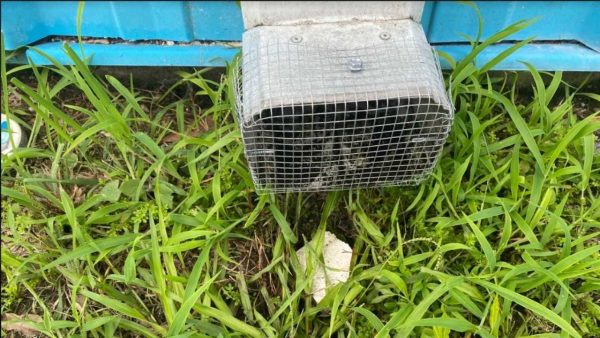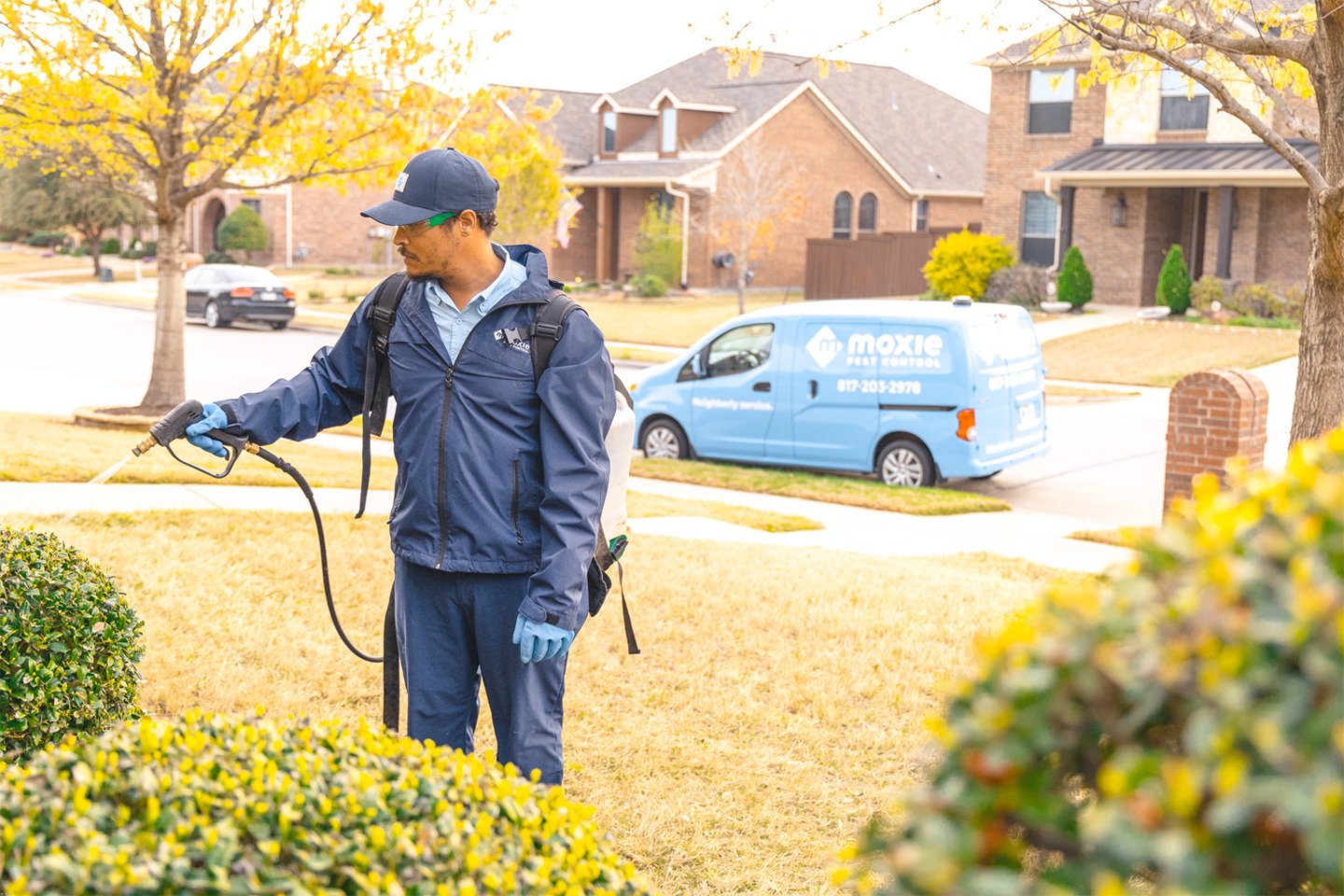Why Pest Control in Charlotte County Is Essential for Your House’s Health
Discover the most recent Breakthroughs in Pest Control and How to Execute Efficient Therapy Solutions
In current years, the field of pest control has actually seen significant innovations, driven by the requirement for lasting and efficient treatment remedies. Innovative strategies such as Integrated Bug Management (IPM) integrate green practices with sophisticated innovation, boosting both effectiveness and ecological responsibility.
Eco-Friendly Bug Control Options
In current years, the demand for environmentally friendly bug control alternatives has surged as property owners and organizations alike look for lasting choices to typical chemical treatments. This shift is driven by growing environmental understanding and a wish to lessen the wellness threats related to artificial chemicals.

Green bug control techniques encompass a range of approaches that focus on using all-natural compounds and practices. Integrated Insect Management (IPM) is one such technique, combining biological, cultural, and mechanical tactics to manage insect populaces while lowering reliance on chemicals (Wildlife removal services). This holistic technique emphasizes avoidance with environment control and the introduction of all-natural predators, consequently fostering a well balanced environment
Another prominent option is making use of herb chemicals derived from plants, which often tend to be less harmful to non-target microorganisms. Products like neem oil and diatomaceous earth have gained grip for their effectiveness in managing parasites while presenting minimal dangers to human wellness and the environment.
Furthermore, exemption techniques, such as securing entry points and keeping sanitation, play an important duty in green pest administration. By taking on these sustainable methods, companies and people can properly manage insects while advertising a much healthier earth for future generations.
Smart Technology in Bug Monitoring
Innovation is reshaping the landscape of insect administration, with clever technology becoming a critical force in improving performance and performance - Wildlife removal services. The integration of Internet of Things (IoT) gadgets, expert system (AI), and information analytics is changing just how pest control professionals approach infestations
Smart traps geared up with sensors can discover insect activity in real-time, sending instant alerts to drivers. This enables for prompt reactions, decreasing damage and lowering the need for comprehensive treatments. Additionally, AI formulas assess historic data to predict pest actions, making it possible for aggressive interventions based on ecological problems and invasion patterns.
Drones and automated vehicles are additionally playing a substantial duty in insect management, providing airborne evaluations of large locations, recognizing hotspots, and even distributing targeted therapies. These innovations not only simplify operations but additionally improve safety by restricting human direct exposure to possibly dangerous chemicals.
Additionally, mobile applications encourage customers to monitor parasite activity and access specialist guidance, fostering a collective approach to pest monitoring. In general, the fostering of wise technology is setting a brand-new requirement in parasite control, highlighting data-driven choices and sustainable techniques that eventually profit both professionals and home owners alike.
Integrated Insect Monitoring Techniques
Integrated Pest Administration (IPM) uses a holistic technique to pest control, combining various approaches to effectively handle parasite populations while lessening threats to human health and the environment. IPM revolves around recognizing the pest life process, their natural opponents, and the ecosystem in which they flourish.
Among the basic components of IPM is keeping an eye on pest populaces through regular examinations and information collection. This enables the click now identification of insect limits, establishing when treatment is necessary. Cultural practices, such as crop habitat, sanitation, and rotation control, are crucial in reducing insect prevalence and promoting plant health and wellness.
Mechanical controls, including obstacles and catches, are likewise important in IPM. These techniques can physically remove or deter pests without making use of chemicals. When necessary, the judicious application of chemical controls is used, concentrating on targeted therapies that lessen environmental impact.
Education and cooperation amongst stakeholders, consisting of farmers, insect control professionals, and the community, are critical for the effective application of IPM techniques. By prioritizing lasting techniques, IPM not only addresses pest issues yet additionally promotes a healthier ecosystem.
Biological Control Approaches
Many biological control approaches are significantly acknowledged for their effectiveness in taking care of bug populations while advertising environmental balance. These techniques harness all-natural killers, parasites, and pathogens to minimize pest numbers without relying upon synthetic chemicals. As an address example, the intro of ladybugs can effectively regulate aphid populations, while nematodes target soil-dwelling pest larvae.
Additionally, making use of microbial chemicals, such as Bacillus thuringiensis (Bt), supplies an eco-friendly alternative for handling caterpillar pests. These products especially target pest species, decreasing harm to beneficial bugs and pollinators. Preservation biological control emphasizes improving environments for natural opponents, such as birds and helpful bugs, consequently urging their presence in agricultural systems.
Research study remains to reveal innovative methods within this area, such as using pheromones to disrupt pest mating patterns or the advancement of biocontrol representatives via hereditary engineering. Executing these techniques can cause lasting parasite management practices that reduce the reliance on chemical interventions, eventually promoting much healthier ecological communities. As awareness of these techniques grows, they are becoming integral components of integrated pest management (IPM) techniques, providing a balance between effective insect control and environmental stewardship.
DIY Pest Control Solutions
As homeowners seek effective methods to take on bug problems, do it yourself pest control solutions have actually obtained appeal for their access and cost-effectiveness. These approaches equip individuals to deal with infestations making use of conveniently offered materials and techniques, often without the demand for specialist intervention.

Furthermore, preserving proper sanitation and regular examinations can protect against parasite access and nesting (Wildlife removal services). Basic methods, such as sealing cracks, getting rid of food resources, and decluttering, can dramatically reduce insect populations. Catches, both homemade and readily offered, can also offer reliable options for monitoring and controlling details bugs like rodents or pests

Verdict
The combination of green bug control options, wise technology, and ingenious management methods offers a thorough method to efficient parasite management. By accepting Integrated Parasite Management (IPM) and making use of organic control techniques, along with Do it yourself services, responsible and lasting parasite control can be achieved.
Environment-friendly parasite control methods include a variety of approaches that prioritize the use of natural materials and techniques. Integrated residential termite treatment Pest Administration (IPM) is one such technique, incorporating organic, cultural, and mechanical strategies to handle bug populaces while reducing reliance on chemicals. As awareness of these methods grows, they are ending up being indispensable parts of incorporated pest management (IPM) techniques, providing a balance between efficient bug control and ecological stewardship.
The combination of green parasite control alternatives, clever modern technology, and cutting-edge administration approaches provides a comprehensive strategy to effective pest management. By embracing Integrated Pest Monitoring (IPM) and making use of organic control techniques, together with DIY services, liable and lasting parasite control can be accomplished.